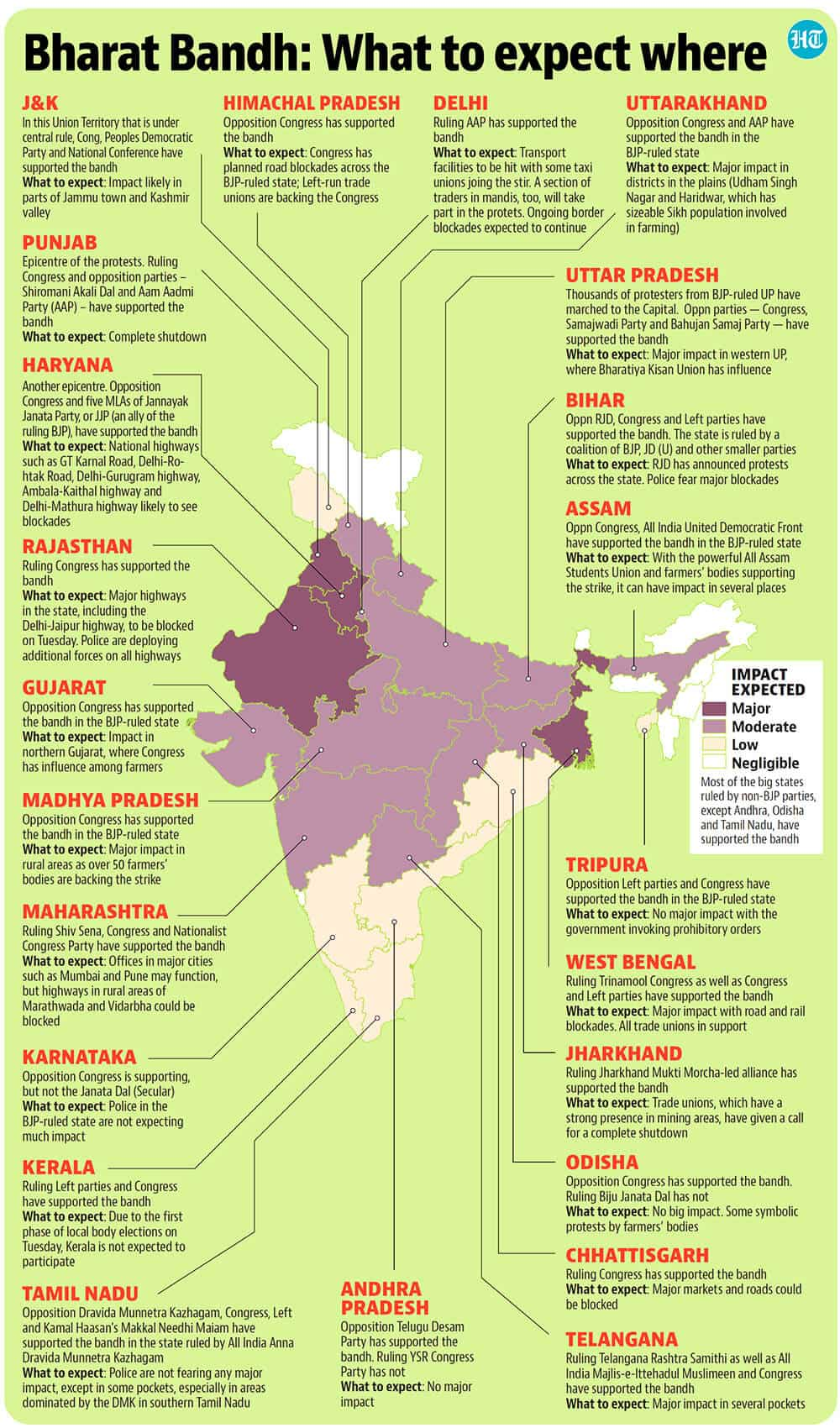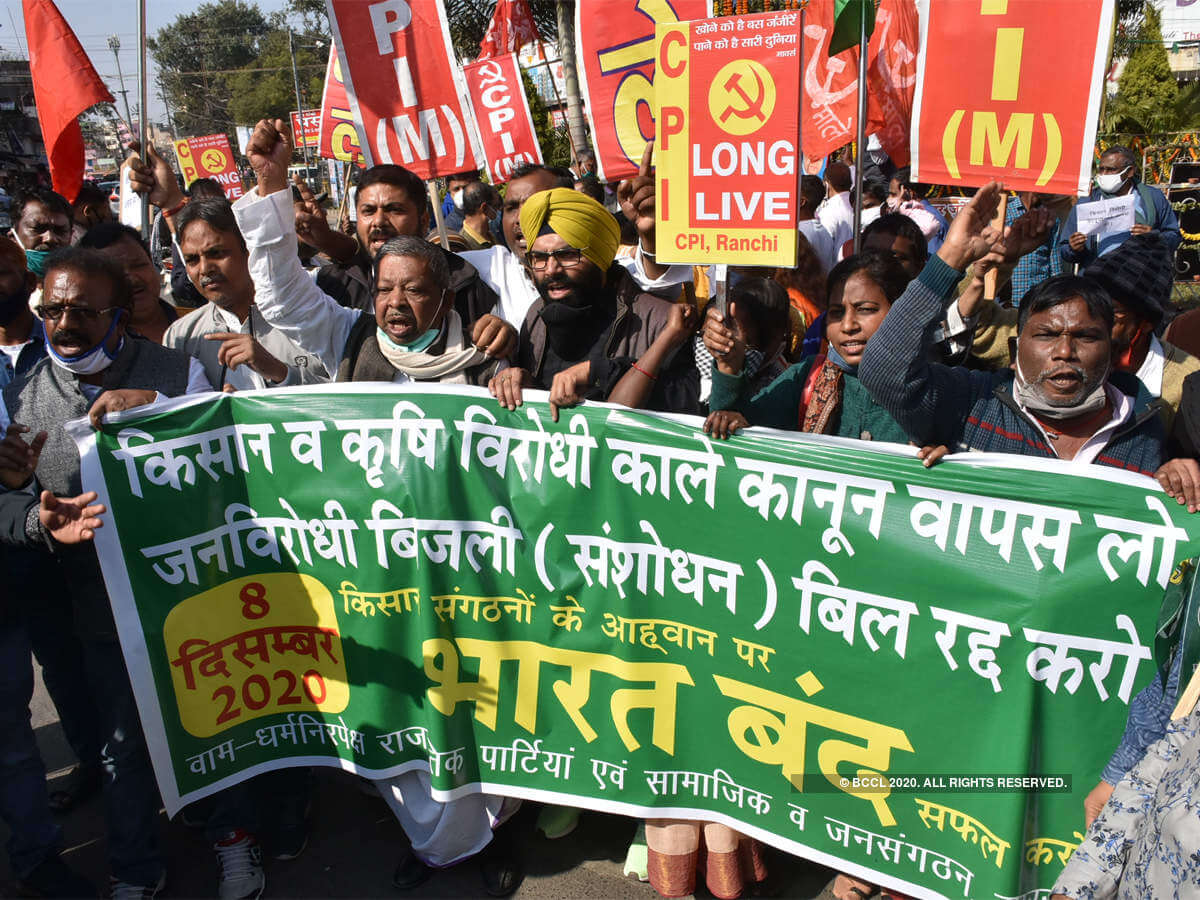Several farmers’ unions, who are currently participating in the ongoing protests against the three agricultural reform laws that have been introduced by the central government in India, have called for a “Bharat Bandh” across the country. According to the spokesperson of the Bharatiya Kisan Union, Rakesh Tikait, “The protest is to show that we don’t support some government policies.” He also reiterated the demonstrators’ commitment to continue protesting in a peaceful manner. This comes following about twelve days of continuous protests by farmers from Punjab and Haryana, who have all assembled in New Delhi. The farmers have vowed to continue their protests until the reforms are withdrawn by the central government.

On Monday, Ravi Shankar Prasad, India’s Law Minister accused the Indian National Congress of having “double standards” especially as it promised to amend the Agricultural Produce Market Committee legal framework in its 2019 manifesto. He said, “Opposition parties have jumped into the issue but during UPA rule, they did exactly what the Modi government is doing today for reforms in the farm sector. Now that they are losing elections, they take part in any protest for the sake of their existence.” While the central government is accusing the opposition parties of orchestrating the “Bharat Bandh,” farmers’ unions have insisted that the demonstrations are apolitical and have even barred any political leader from taking the stage during the protests.
Currently, the ongoing protests have been supported by 19 political parties, including the Indian National Congress, the Shiv Sena, Aam Admi Party, Samajwadi Party, and Bahujan Samaj Party. Several trade unions, including numerous cab and taxi unions, have expressed their support for the bandh. However, Mamata Banerjee’s Trinamool Congress party, who has strongly opposed the laws in the Parliament, has refused to participate in the “Bharat Bandh” as it believes that such a call is against the principles of the party.
This comes a day before another round of discussion has been scheduled between the government and the representatives of the farmers. The December 9 discussion will be the sixth round of talks since the introduction of the laws in September. On Saturday, the demonstrators refused the government’s proposal to amend the controversial parts of the laws, particularly those relating to crop pricing. They continued to insist on the complete withdrawal of the laws. Following Saturday’s talks, Agriculture Minister Narendra Singh Tomar said, “We will consider all the demands they have made and we will reach a solution.” He also said that the government has reassured the demonstrators that they will continue to provide the farmers with minimum support prices for crops.
Amidst the strong criticism faced by the central government, Indian Prime Minister Narendra Modi has maintained his support for the laws. He has repeatedly reiterated the need to introduce the laws for furthering development. While inaugurating the Agra metro rail, he said, “Reforms are very much needed for a new order and to give new facilities. We cannot build the next century with the laws of the previous century … Earlier, reforms used to happen in a piecemeal manner, or keeping in mind some sectors and departments.”
The agricultural reform bills that have led to this nationwide agitation — The Farmers’ Produce Trade And Commerce (Promotion And Facilitation) Bill, The Farmers (Empowerment and Protection) Agreement on Price Assurance and Farm Services Bill, and The Essential Commodities (Amendment) Bill — have been criticised for being too liberalised and for assuming that the current structure is devoid of private entities. Farmers fear that changes to the crucial minimum support price clause, doubled with the ease of business for corporate entities, will complicate their lives as they already struggle to sell goods. Further, the laws have been slammed for being opaque and providing no redressal mechanisms or sureties to farmers, with the government essentially stepping back from its role as a guarantor in a free market system.

